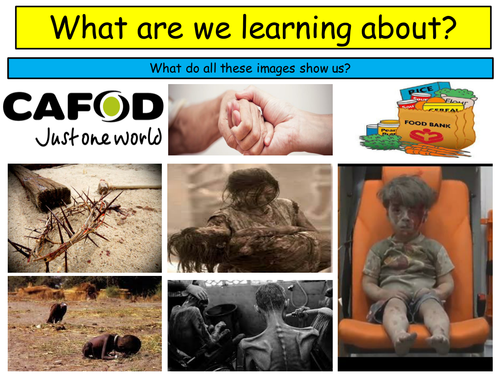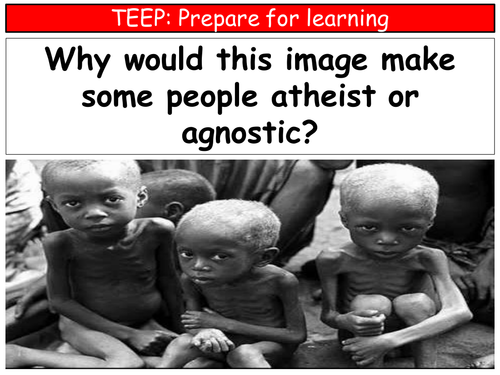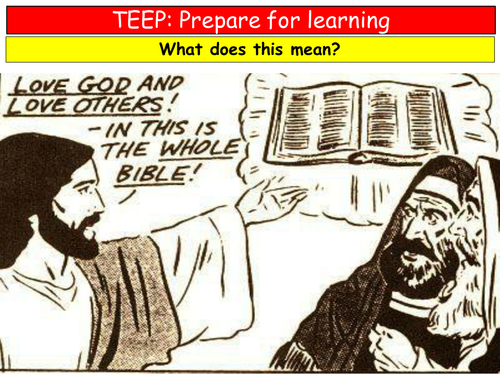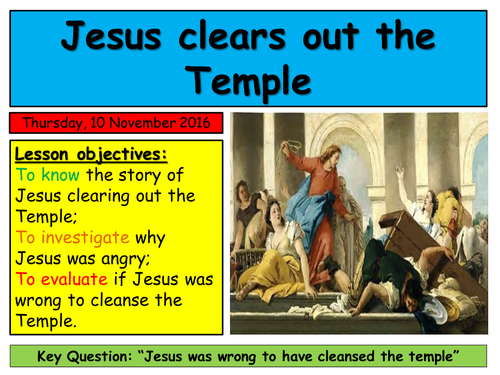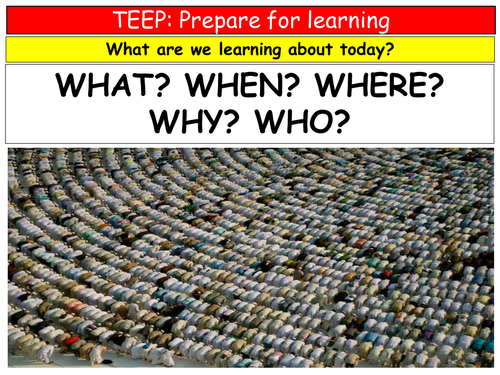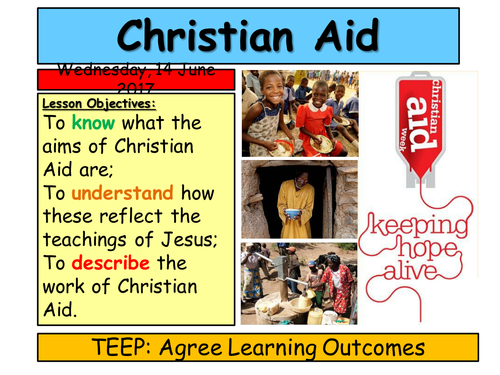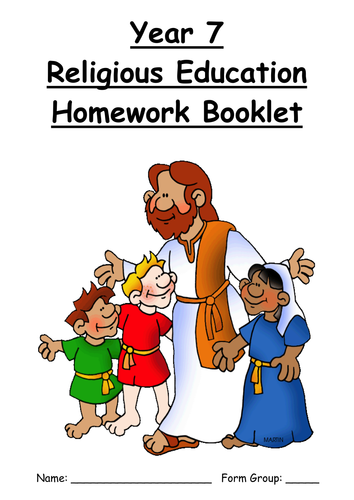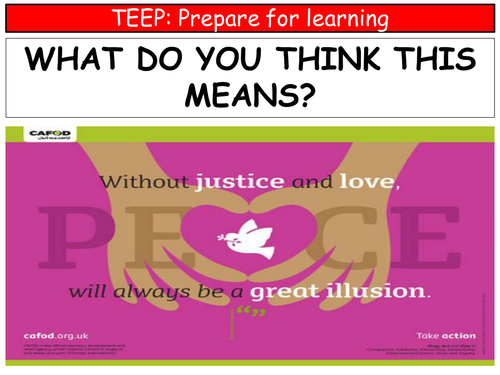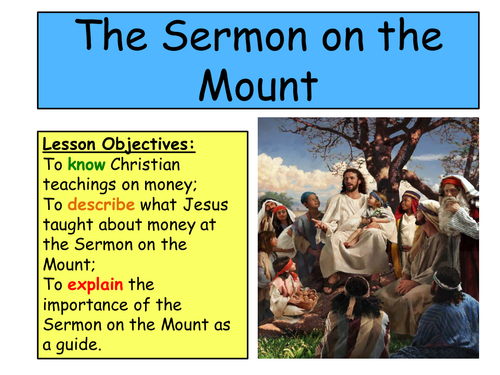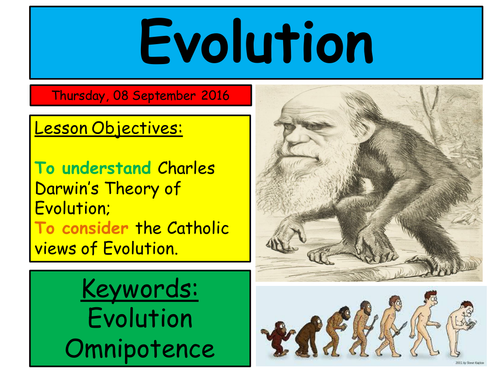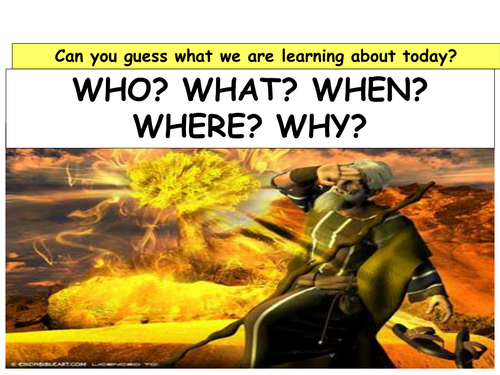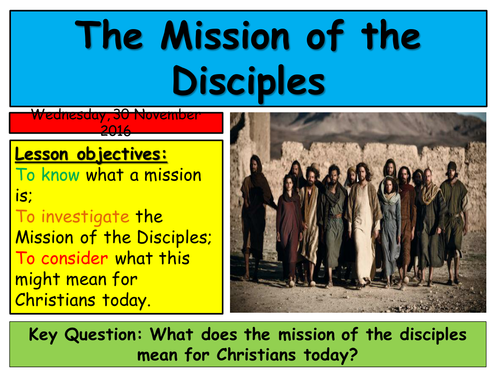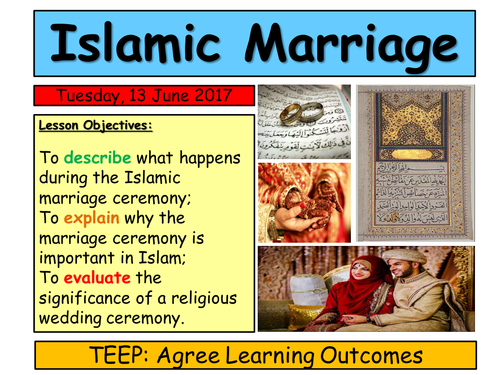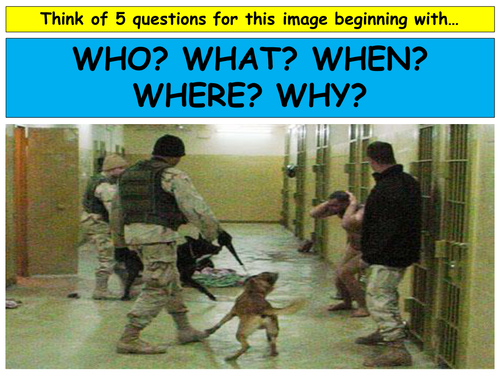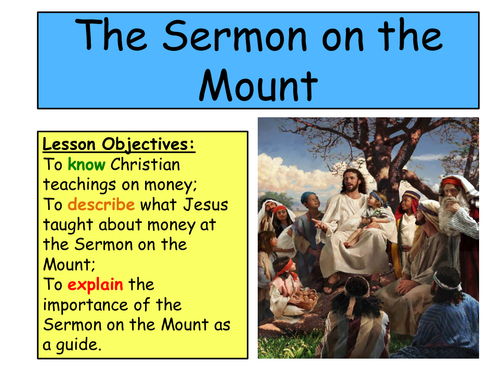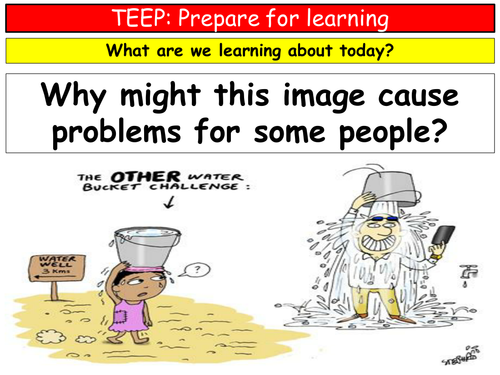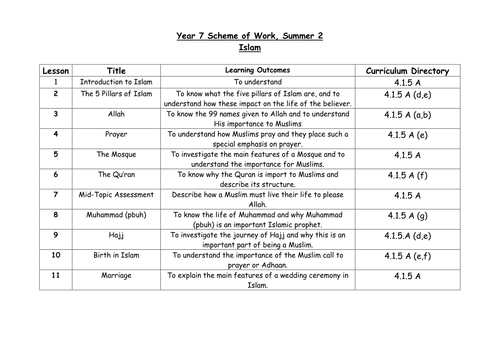
61Uploads
25k+Views
6k+Downloads
All resources

EDUQAS Route B, Theme 1.2 Good and Evil The meaning of Suffering to Roman Catholics
This lesson I have looked at the meaning of suffering and focused on the Omni-benevolence of God. The lesson starts with an entry task, shared objectives and a Pictionary keyword starter task.
The lesson is focused on a D style question “God cannot be omnibenevolent because we have suffering in our world” (15). Pupils must place themselves on an opinion line relating to this question.
Pupils must take part in a collaborative learning task where they are expected to produce a presentation based on what they have learnt. They must make reference to the teaching of the Bible, Church and religious leaders.
They exam question is reviewed and answered (a basic structure is provided)
Pupils then review the opinion line again to assess if their opinion has changed.

EDUQAS Route B, Theme 1.2 Good and Evil, Catholic responses to Evil and suffering
There is an entry task for pupils to complete as they enter.
Objectives are shared with the pupils
Starter: A video clip (The image is hyperlinked) pupils must come up with 3 reasons why people are atheist or agnostic.
The problem of evil is shared with pupils and then they must complete an 'investigation task' around the room with various catholic responses.
This is fed back to the whole class where pupils are to analyse with responses they believe are most and least convincing and a reason why.
Pupils are to answer a C question: Explain how Catholics respond to the problem of evil (8)
This is peer assessed with suggested WWW's & EBI's provided.
A short plenary.
**THIS LESSON HAS BEEN PLANNED USING THE TEEP (Teacher Effectiveness Programme) CYCLE AND SO THERE IS REFERENCE TO EACH ASPECT OF THAT ON THE SLIDES

EDUQAS Route B, Theme 1.2 The Moral Authority of Jesus
The lesson focuses on need for laws in society, and linking these to Old Testament religious laws, and how Jesus changed these at the Sermon on the Mount.
Pupils are to work together to see how Jesus changed these laws. Pupils must then apply these to issues that they may have in their life and decide how Jesus would respond.
These is a final C question with guidance to finish the lesson.

EDEXCEL Unit 16.2, Mark's Gospel. Jesus cleanses the Temple
KS4 bases lesson looking at the importance and significance of Jesus cleansing the Temple. There are a variety of different learning styles included in this lesson. All hand outs are attached.

KS3 Islam- Salat (Prayer)
Lesson Objectives:
To know why prayer is important to Muslims
To understand how the ritual of prayer can have meaning for Muslims.
To explain how prayer can express and reveal important beliefs.

KS3 Charity- Christian Aid
Lesson Objectives:
To know what the aims of Christian Aid are;
To understand how these reflect the teachings of Jesus;
To describe the work of Christian Aid.

EDUQAS Religious Education Route B,Theme 1.1 Origin & Meaning lesson bundle
This is a bundle of lessons I have created for EDUQAS Theme 1.1.The pack includes:
Introduction to the course;
Evolution;
Religious and non-religious views of creation;
Imago Dei;
The value of human life and abortion;
Humanist critiques of catholic attitudes to abortion;
Revelation;
Stewardship;
First & Second accounts of creation in Genesis;
Human Dignity
Human Dignity and the Sheep and Goats.

KS3 Homework booklet: Prophets and Christmas
This is a half term homework booklet is designed around a SOW on the prophets and Christmas.
There is a Learning programme that specifies what the pupils will be learning about in lesson, and how this links to their homework.
Each task has success criteria, and space to complete it.
It was created on Word so is easily edited to suit your own SOW.

KS3 Charity- Who are CAFOD and impact of CAFOD
Two lessons on CAFOD
To know who CAFOD are;
To explore the work of CAFOD
To evaluate the impact of CAFOD.

KS3 Charity- Christian Teachings. The Sermon on the Mount
Lesson Objectives:
To know Christian teachings on money;
To describe what Jesus taught about money at the Sermon on the Mount;
To explain the importance of the Sermon on the Mount as a guide.

EDUQAS RE GCSE Route B, Theme 1: CAtholic attitudes to evolution
EDUQAS RE GCSE.
A variety of different learning styles looking at the basics of evolution and then exploring the Catholic attitude towards this.
GCSE question included.

The Prophet Moses
A KS3 lesson focusing on Moses and the messages he received from God.
There are a variety of different learning styles included in this lesson.
Lesson objectives are referred to throughout the lesson, as well as a Key Question that pupils will answer at the end of the lesson.

KS3 Sending out the 12 Disciples
This lesson is aimed at KS3 but could be adapted for older pupils. The aim of the lesson is to think about what the mission of the disciples was, and what impact that has on Christians today.
The lesson includes a variety of activities including an investigation task and an exam style question as well as a postcard (from their mission) as a plenary activity.

KS3 Islam- Marriage
To describe what happens during the Islamic marriage ceremony;
To explain why the marriage ceremony is important in Islam;
To evaluate the significance of a religious wedding ceremony

2016 RE EDUQAS GCSE. Route B, Theme 1 Catholic Social Teachings on Human Dignity
This lesson focuses on the Parable of the Sheep and Goats and how that Links to human dignity.
The starter pupils are to do a Kagan style task, focusing on what Human dignity is.
There is a collaborative learning task, and whole class feedback, leading to answering an exam question where pupils are to peer assess their answers. All worksheets needed are attached to the PowerPoint.

2016 RE EDUQAS GCSE. Route B, Theme 1. Human dignity
This lesson looks on the value of human life and the importance of Human dignity with a focus on Guantanamo Bay.
Pupils must consider if all humans deserve dignity, and any cases where they may not.
There are video clips looking at the teachings of Jesus regarding Human Dignity, and questions relating to each one.
There is a 'key question' that is on each slide that pupils must answer at the end of the lesson. There is also a structure to assist pupils in doing this.
The plenary is a reflective triangle, where pupils must think about what they have learnt, and what they would like to know more about.
** some slides, the text boxes appear to be overlapping. They have animations on and will be clear and make sense when played through as a slideshow **

KS3 Charity- Christian Teachings, Sermon on the Mount
To know Christian teachings on money;
To describe what Jesus taught about money at the Sermon on the Mount;
To explain the importance of the Sermon on the Mount as a guide.

KS3 Charity- Water Aid
To recognise the work that WaterAid do;
To describe why lack of water is an issue in the world;
To explain the importance of the role of WaterAid in ensuring people have access to clean water
Bundle

REligious Education KS3 Charity
Assessment pack- SOW, Learning Plan, End and Mid-topic assessment, Assessment prep lesson.
Causes of poverty;
Christian teachings- Sermon on the Mount;
Christian teachings- Sheep and Goats;
Christian Aid;
CAFOD (x2)
Send my friend to school (x2)
The SVP
St Francis House;
WaterAid;

KS3 Islam Assessment bundle
Islam Assessment bundle includes:
Scheme of work;
Learning programme of week by week learning including homework;
End of unit assessment with skills and space for WWW and EBI;
End of unit assessment lesson preparation lesson;
Mid-topic assessment lesson.

